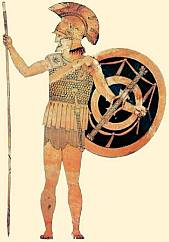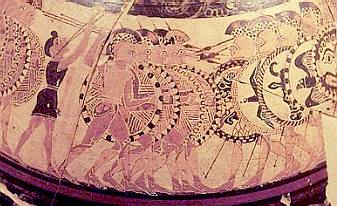Yesterday Heroyalwhyness
wondered if any of Geert Wilders’ three trial witnesses might become vulnerable to prosecution due to their opposition to Islam. A German reader wrote me last night with an extensive explanation about what the issues are in this regard, and what their ramifications might be for the larger struggle:
Dear Baron Bodissey,
Greetings from Germany.
In response to the question I read earlier this day:
An important question, sent by Heroyalwhyness:
Just read your update of Geert’s trial and the limitations on his witness list.
All of the witnesses allowed hold similar views to Wilders. What legal assurances, pray tell, are these witnesses being given that they too will not be prosecuted for their testimony?
Do any of our Dutch readers know the answer to this question?
First of all we must remember that the public prosecutor (OM) rejected the original complaints for prosecution. The (eight) complainants appealed against this rejection, which led to the current process. So the rejection by the public prosecutor (OM) is overruled by the court (hof van justitie). The court explains its motivation for prosecution with the following statements:
| 1. | | Hate speech uttered with increasing temper. |
| 2. | | According to European juridical norms, freedom of speech in general is not undermined by this particular prosecution. |
| 3. | | Disturbing the public interest by misusing the public debate. |
 “In general the court states that the tradition in the Dutch cultural debate is based on explicit tolerance towards each other’s conceptions, and that from Muslim immigrants we may expect understanding for the prevailing sentiments in the Netherlands towards their religion, which is at certain points at tension with the Dutch and European values and norms. About insulting expressions the court prefers political, social and other juridical opposition than criminal law, through which an active participation in the public debate, by Muslims also, is stimulated.
“In general the court states that the tradition in the Dutch cultural debate is based on explicit tolerance towards each other’s conceptions, and that from Muslim immigrants we may expect understanding for the prevailing sentiments in the Netherlands towards their religion, which is at certain points at tension with the Dutch and European values and norms. About insulting expressions the court prefers political, social and other juridical opposition than criminal law, through which an active participation in the public debate, by Muslims also, is stimulated.
The court makes an exception for insults in which a relation with Nazism is being displayed (by comparing the Koran with Mein Kampf)…”
The reason for prosecution is the combination of insult (by the comparison with Nazism) and the increasing fierceness of Mr. Wilders’ expressions and by these the disturbing of the democratic order. The witnesses have no reason to be scared of prosecution for two reasons:
- - - - - - - - -
| 1. | | Mr. Wilders’ prosecution is based on the ‘complaint procedure’. |
| 2. | | Only a certain (fairly unique) combination of factors is, according to the court, worthy of prosecution. |
Many in the Netherlands express the same views as Mr. Wilders. I myself was at the demonstration in front of the courthouse. I have seen with my own eyes that a significant number of the demonstrators were well-educated people. The Dutch debate on integration has been very fierce and insulting for years. But when this language reaches the national politics, many in Europe become very nervous. We all know why.
In my opinion an important forgotten distinction should be added to the vocabulary of the opposition to Islam. I have never heard anyone mention it. The European political tradition has always distinguished between a public enemy (hostis) and a private enemy (inimicus).
Inimicus is the hostility (Feindschaft) between people or organisations within the political (and therefore juridical) order. The laws and juridical system are sufficient to solve this kind of hostility.
Hostis is the hostility between a person, a group, an ideology, a religion, and the unity of the political order itself. It is the hostility towards the foundation of the political and juridical order. This cannot be solved by the same ways as inimicus, because it places itself ‘outside’ the order.

This abstraction of the hostis (Feind-erklärung) works to Mr. Wilders’ disadvantage. Because this important distinction (introduced by the Greeks and Romans) is lost to the public consciousness, Wilders’ distinction between Islam and Muslims can no longer be seen, and therefore his message is understood as hostility towards individual Muslims. Most of the individual Muslims are not hostile, but as a group they can be hostile towards the democratic foundation, for instance by the lack of active support of it. This hostility now seems to exist. I suspect that the worldwide opposition to Islam will remain fragmented until people understand this real distinction and use it to ground themselves.
When Jesus speaks about ‘turning the other cheek’ he means, of course, the private enemy (inimicus). Men should be friends as private persons, no matter what. No Christian ever intended to give the political order away to solve his private hostility. But that is what’s happening now. As a Dutch-German I see in the Netherlands and Germany (as well as in Austria and Switzerland) enough opposition to beat the Islamic influence in Europe, but first we must know what we are doing, and which tools we have.
I hope to have answered the good question sufficiently, although it was a bit long.
“In general the court states that the tradition in the Dutch cultural debate is based on explicit tolerance towards each other’s conceptions, and that from Muslim immigrants we may expect understanding for the prevailing sentiments in the Netherlands towards their religion, which is at certain points at tension with the Dutch and European values and norms. About insulting expressions the court prefers political, social and other juridical opposition than criminal law, through which an active participation in the public debate, by Muslims also, is stimulated.


2 comments:
The distinction between "hostis" and"inimicus" strikes me as an intellectual exercise to arrive at a respectable and acceptable justification for opposing islam while retaining the cultural relativist's principle of individuation of muslims. The reasoning seems to be that we must not appear hostile towards muslims per se but only the ethos that unites them as a group. That, I infer, is the tangled logic of the claim that "most of the individual Muslims are not hostile, but as a group they can be hostile towards the democratic foundation." So I should only fear muslims collectively? This view fails to appreciate how pervasive and inseparable the islamic ethos is in the lives of muslims. In the case of islam, judged entirely on the principles enunciated in its credal documents, I see no genuine or meaningful difference between the hostility of its ideology and the enmity of its adherents.
Suicide bombers may act in groups or alone. Thus muzlims are hostile to Western society, both individually as as a large group.
It is, of course, true that not all muzlims are hostile to the West, at least not hostile enough to act upon it. But none of them are sufficiently supportive of the West to prevent it from happening. We never see muzlims policing themselves to protect the West. Until that day comes, we must look to ourselves to protect ourselves.
Post a Comment